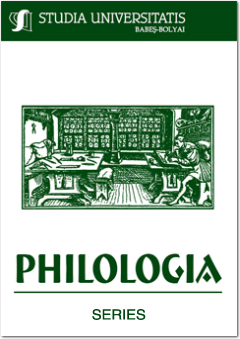TROPES OF OBLIVION: THE ETHICS OF FORGETTING IN THE CONTEMPORARY BRITISH NOVEL
TROPES OF OBLIVION: THE ETHICS OF FORGETTING IN THE CONTEMPORARY BRITISH NOVEL
Author(s): Carmen-Veronica BorbélySubject(s): Language and Literature Studies
Published by: Studia Universitatis Babes-Bolyai
Keywords: oblivion; forgetfulness; remembrance; literal memory; exemplary memory; Julian Barnes.
Summary/Abstract: Tropes of Oblivion: the Ethics of Forgetting in the Contemporary British Novel. Julian Barnes’ A History of the Eorld in 10 ½ Chapters. Rather than being the flipside of memory, its agonistic foil, the aetiology and symptom of its fallibility, oblivion – whether involuntary or deliberate, spontaneous or chronic – seems locked in a conjunctive, rather than disjunctive processual logic with memory, whose project of clarifying, structuring and interpreting the archive of the past it both confounds and assists. This paper examines the dialectics between remembrance and forgetting, between recollection and the suppression/ repression of memory in Julian Barnes’ A History of the World in 10 ½ Chapters, with a view to highlighting the metaphorics of oblivion (Weinrich 2004) it deploys towards making sense of traumatic historical events. Tropes like the perishable canvas in Barnes’ narrative serve as objective correlatives for the necessary gestures of concealment, silence and forgiving that must accompany the narrative reconfiguration of a collective memory which, in the words of Tzvetan Todorov, must be exemplary, liberating and future-oriented.
Journal: Studia Universitatis Babes-Bolyai - Philologia
- Issue Year: 56/2011
- Issue No: 2
- Page Range: 65-77
- Page Count: 13
- Language: English

